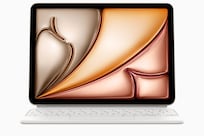LA PAZ // Bolivians will vote on Jan 25 on a new constitution that would give more power to the country's long-oppressed 36 indigenous peoples, provide for a fairer redistribution of wealth from gas and oil reserves and strengthen the role of the state in economic policy. In October, Evo Morales, the president, agreed to seek only one more five-year term as part of a deal with the opposition to get the referendum before the voters. It is scheduled to be followed by elections for president, vice-president and congress on Dec 6. If the measure passes as expected, Bolivia, in which 60 per cent of the people are indigenous, with most living in extreme poverty, will move a long way forward in living up to the ideals of its namesake, Simon Bolivar. The Venezuelan-born liberator was instrumental in achieving independence for Ecuador, Peru, Venezuela, Panama, Colombia and Bolivia in the 19th century. His name is still revered in South America and is used frequently by politicians, especially those who place social justice at the top of their agenda. In neighbouring Venezuela, Hugo Chavez, the president, is trying to create what he calls a Bolivarian revolution, which in shorthand means simply redistributing wealth and political decision-making away from the traditional centres of power to the people.
But the country named after Bolivar, and which he served as its first president in 1825, has traditionally been the one of the least capable of doing justice to his legacy. It is almost as if the weight of burden of being named after one of the great independence heroes was too much. Bolivia is also where, 141 years after Bolivar stepped down in 1826, another independence fighter found little support for a new revolution. Che Guevera was executed by the Bolivian military in 1967 after trying to copy tactics that were successful in Cuba but totally out of place in landlocked Bolivia. His iconic image may adorn posters in university students' bedrooms and T-shirts all over the world but in the land of his death his message was unable to rally the masses. Empowering the majority against the white elites is exactly what the Jan 25 vote is about, Mr Morales has said. In October after the country's congress approved holding the referendum, it was reported that he told thousands of supporters in La Paz's main square: "Now we have made history. The process of change cannot be turned back ? neoliberalism will never be the same."
That the vote is actually taking place was the result of tense, internationally monitored negotiations between Mr Morales's party, the Movement for Socialism (MAS), and its regional and party opponents. A wide array of Bolivia's warring factions agreed to bring the proposed constitution to a vote in exchange for MAS's acceptance of hundreds of amendments, large and small. The arguments over constitutional reform began in 2006 when the assembly was elected to draft a new charter. But the debate has resulted in deadly violence and in September anti-Morales rioters seized government offices in some parts of the country. The referendum, in which more than four million Bolivians are expected to take part, is the most significant one since Mr Morales was elected in Dec 2005. He is considered the country's first fully indigenous head of state in the 470 years since the Spanish Conquest. Mr Morales easily survived an Aug 2008 recall referendum with a 67 per cent yes vote. tclifford@thenational.ae





